Asset Publisher
Atlantik-Bruecke Canada

Atlantik-Bruecke Canada is a not-for-profit and non-partisan organization dedicated to the development of positive relations between Germany and Canada, partnered with Atlantik-Brücke. We are member-driven and provide a forum for our members to learn from one another and develop direct relationships with German counterparts for the betterment of Canada. We educate our stakeholders through research intended to facilitate policy and business decisions, and we promote dialogue and thought leadership on important bilateral issues. Atlantik-Bruecke Canada also contribute to the development of the next generation of leaders, through our active support of young and future members.
To the webpage
The Dais

The Dais is where ideas meet action. We are a public policy and leadership institute at Toronto Metropolitan University, connecting people to the ideas and power we need to build a more inclusive, innovative, prosperous Canada. Another think tank? Think again.
To us, bold ideas plus deliberate actions create positive change.
That’s why we bring together people confronting big challenges, put our research and solutions into the hands of decision-makers, and equip leaders with the knowledge and skills to act on the issues. Since 2015, our team has worked across Canada and internationally to develop new ideas and better leaders, resulting in measurable change in economic, education and technology policy, and thousands of people whose lives have been changed through our leadership programs. From our home at TMU, we have direct access to scholars, students, entrepreneurs, leaders and networks who can develop new ideas and challenge old assumptions — with national and global reach.
To the webpage
Carleton University - Centre for European Studies

The Centre for European Studies (CES) is an interdisciplinary unit with the mandate to further research, teaching, and public outreach activities in the area of European Studies at Carleton University and in the Ottawa area. CES was established in October 2000; it was designated a Carleton University Research Centre (CURC) in 2006.
To the webpage
Canadian Global Affairs Institute

The Canadian Global Affairs Institute (CGAI) is one of Canada’s sources of expertise on global affairs. The work of CGAI researchers, fellows and advisors sparks nation-wide discussions and debates that are designed to help Canadians better understand their role on the world stage. Established in 2001 and based in Calgary and Ottawa, the Canadian Global Affairs Institute is a registered charity, which comments repeatedly in the media and publishes extensively on defence, diplomacy, trade, resources, and development. CGAI’s mission is to identify Canadian global interests and promote more active and effective international involvement through rigorous strategic and policy analysis and to help inform Canadians on the connection between international affairs and a secure and prosperous Canada.
To the webpage
Canadian International Council (CIC)
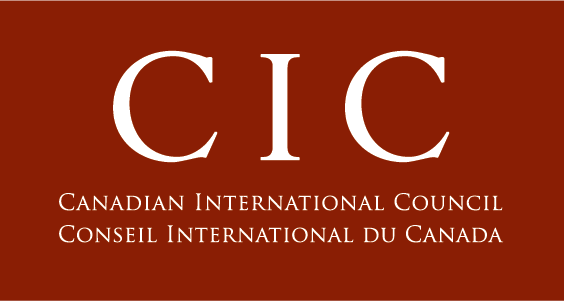
The Canadian International Council (CIC) is a platform for citizens to engage in discussions on international issues. Its mission as an independent, non-partisan and charitable membership organization is to involve Canadians in defining their country’s place in the world. The mission of the CIC is to nurture awareness and understanding of critical international affairs challenges and to advance constructive discourse and debate on how to address them. The CIC owes no allegiance to any government or political party and does not take institutional positions on policy issues. The council provides an open forum where a diversity of viewpoints can be expressed. The CIC believes that efforts to foster greater awareness and understanding of the world in Canada will amplify Canada’s voice and influence on the global stage.
To the webpage
Canadian Institute for Climate Choices

The Canadian Institute for Climate Choices brings together experts from diverse disciplines to undertake rigorous research, conduct insightful analysis, and engage a range of stakeholders and rightsholders to bring clarity to the climate challenges and transformative policy choices ahead for Canada. The Canadian Institute for Climate Choices was established following a competitive request for proposals led by Environment and Climate Change Canada. That process resulted in a mandate to create a pan-Canadian expert collaboration that would “provide independent and expert-driven analysis to help Canada move toward clean growth in all sectors and regions of the country.” While our work is supported through a five-year contribution agreement with Environment and Climate Change Canada, the Institute is a wholly independent organization and retains full control over its research, findings, and policy recommendations.
To the webpage
Centre for International Governance Innovation (CIGI)

The Centre for International Governance Innovation (CIGI) is an independent, non-partisan think tank whose peer-reviewed research and trusted analysis influence policy makers to innovate. Our global network of multidisciplinary researchers and strategic partnerships provide policy solutions for the digital era with one goal: to improve people’s lives everywhere. Headquartered in Waterloo, Canada, CIGI has received support from the Government of Canada, the Government of Ontario and founder Jim Balsillie.
To the webpage
Europe Canada Network (EUCAnet)
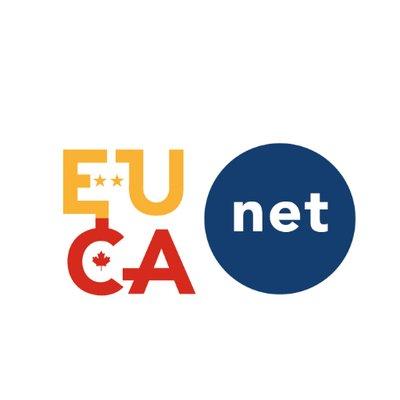
EUCAnet (Europe Canada Network) is a hub for experts primarily located in Canada that work on European and Canadian current issues from a transatlantic perspective. These experts offer commentary and expertise and are available for media interviews and public talks. We are a public outreach platform – that makes scholarly knowledge available and meaningful to the public in times when the need for evidence based knowledge and public debate is crucial. Our goal is to foster the Canada Europe Transatlantic Dialogue with the aim of supporting the process of informing public policy making.
To the webpage
ICLEI - Local Governments for Sustainability
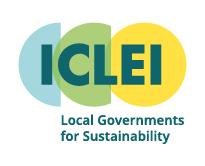
ICLEI – Local Governments for Sustainability is a global network of more than 2500 local and regional governments committed to sustainable urban development. Active in 125+ countries, we influence sustainability policy and drive local action for low emission, nature-based, equitable, resilient and circular development. Our Members and team of experts work together through peer exchange, partnerships and capacity building to create systemic change for urban sustainability.
To the webpage
International Political Science Association

The International Political Science Association (IPSA) was founded in Paris in 1949 under the aegis of the United Nations Educational, Scientific and Cultural Organisation (UNESCO) and is based in Montreal. The special mandate of IPSA is to support the development of political science in all parts of the world, building academic networks linking East and West, North and South. Its aim is to create an inclusive and global political science community in which all can participate. It seeks to promote collaboration between scholars in emerging and established democracies and to support the academic freedoms needed for the social sciences to flourish. The activities and policies of IPSA reflect its global mission. IPSA has maintained its links with the United Nations and has supported the development of other international and regional political science organizations. By linking scholars from North and South as well as East and West, IPSA seeks to strengthen the networks that underpin a global political science community. Such linkages put political science in a stronger position to contribute to the quality of public deliberation and decision-making as well as to the understanding of an increasingly interconnected political world. Ultimately, IPSA supports the role of political science in empowering men and women to participate more effectively in political life.
To the webpage
The Konrad Adenauer Research Chair in Empirical Democracy Studies

The Konrad Adenauer Research Chair in Empirical Democracy Studies is a research unit funded by the Konrad Adenauer Foundation Canada and affiliated with the Faculty of Social Sciences at the University of Ottawa. The chair’s mandate is to study key challenges of contemporary democracies including those shaping Germany and Canada. Using methodological pluralism the chair tries to contribute to knowledge in the field of populism, election studies, public opinion research and political representation. Through conferences workshops and exchanges, the chair aims at bringing together faculty members, graduate students, and undergraduate students. Members of the chair also try to outreach to the media and wider communities in Germany and Canada.
To the webpage
Macdonald-Laurier Institute
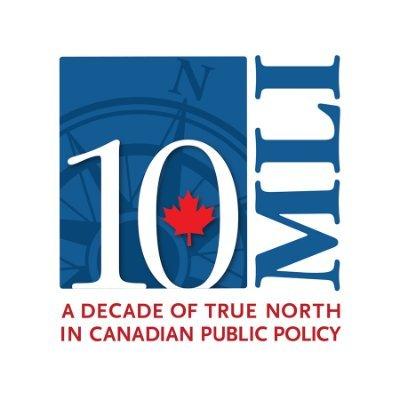
The Macdonald-Laurier Institute (MLI) is a think tank that focuses its research on current and emerging public policy issues facing Canada and conducts extensive studies in the areas of defense, security, foreign policy, immigration, economic and fiscal policy. MLI also publishes frequently on topics such as US-Canada relations, regulatory and regional developments, social policy and indigenous peoples' issues. The Institute is named after Sir John A. Macdonald and Sir Wilfrid Laurier, two outstanding and long-serving former Prime Ministers who embody the best of Canada's political tradition. A conservative and a liberal, an English-speaking and a French-speaking statesman, both represented the values that contributed to the founding of Canada and the emergence of one of the world's leading democracies.
To the webpage
Pembina Institute
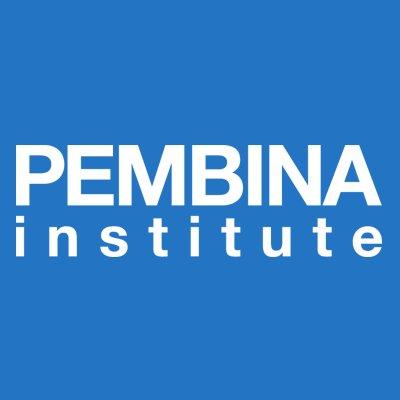
Maintaining a healthy environment, a stable climate and prosperous communities requires collaboration, evidence-based decision making and innovative solutions. That’s what the Pembina Institute is about. The Pembina Institute is working to solve today’s greatest energy challenges — reducing the harmful impacts of fossil fuels while supporting the transition to an energy system that is clean, safe and sustains a high quality of life. We provide our expertise to industry and government leaders, and we advocate for a strong, science-based approach to policy, regulation, environmental protection and energy development.
To the webpage
The Montreal Institute for Genocide and Human Rights Studies (MIGS)

The Montreal Institute for Genocide and Human Rights Studies (MIGS) is recognized internationally as Canada’s leading ideas and leadership institute for the prevention of genocide, mass atrocity crimes and violent extremism. MIGS conducts in-depth research and proposes concrete policy recommendations to resolve conflicts before they degenerate into mass atrocity crimes. MIGS has achieved national and international recognition for its role as an idea and leadership incubator working with policymakers, academics, leading research institutions, and the media. Today, MIGS is Canada’s leading voice and international partner on threats to human security.
To the webpage
University of British Columbia-Centre for Migration Studies
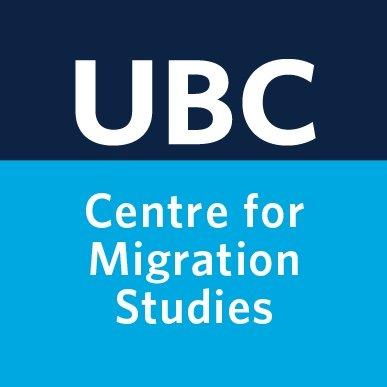
The UBC Centre for Migration Studies seeks to understand the drivers and consequences of international migration through research, education, and outreach. International migration presents complex challenges and opportunities for governments, societies, and the international community. At the UBC Centre for Migration Studies, we bring together researchers and collaborators from a wide range of disciplines, to promote debate and share their expertise on cross-border migration. Our research covers various migration-related topics, including social inclusion and integration, immigration policy, public opinion and xenophobia, border politics, and the intersection of Indigeneity and immigration.
To the webpage
University of British Columbia- School of Public Policy and Global Affairs
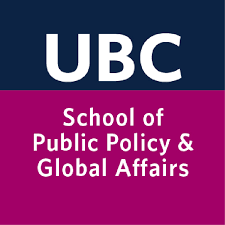
The UBC School of Public Policy and Global Affairs (SPPGA) integrates world-class scholarship, teaching, research, and policy engagement to contribute towards positive change. Our approach equips policy leaders with the diverse perspectives, skills, and knowledge needed to contribute towards solutions to complex local and global issues.
To the webpage
University of Ottawa- Faculty of Social Sciences
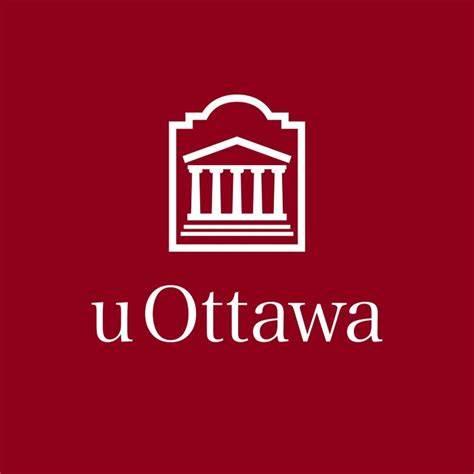
The Faculty of Social Sciences (FSS) comprises nine departments, schools and institutes, which offer undergraduate, masters and doctoral programs in both English and French. With its 10,000 students, 260 full-time professors, and wide array of programs and research centres, the FSS plays a key role at the heart of the University of Ottawa. Its graduate students are supervised by excellent researchers and undertake cutting-edge research in the Faculty's masters and Ph.D. programs.
To the webpage
University of Victoria- Centre for Global Studies

Under the leadership of its current Director, Dr. Oliver Schmidtke (Poli and History), the Centre focusses on a mandate to promote collaborative, multidisciplinary, and cross-regional research and engage in connecting research in the field of global studies to local, national, and international communities. As such, CFGS is uniquely positioned to bridge academic research and student mentoring with knowledge mobilization and effective community engagement. The Centre awards fellowship to advanced graduate students, international scholars, and faculty researchers. These fellowships provide office space, a fellowship stipend for graduate students/visiting scholars and course and administrative release for faculty ranging from several weeks to a year in residency.
To the webpage


